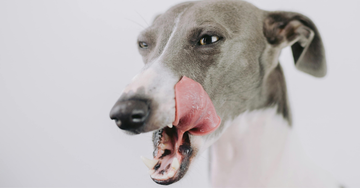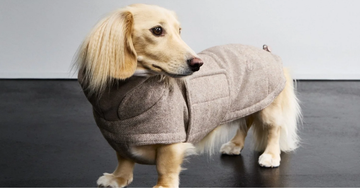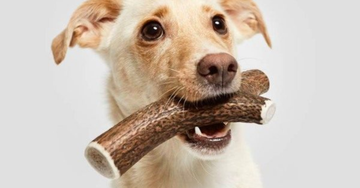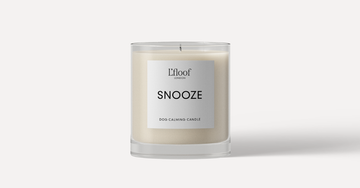In order to be able to invite your dog to all the Christmas parties and Christmas Eve, it might be good to know what your dog doesn't like from the Christmas table (and what you can offer him instead).
Keep the pork roast for yourself.
Begging puppy eyes at the dining table – it's not always easy to say no...
But Christmas is a fat time, and the fatty foods that are at home on the Christmas table are not healthy for your dog. Not only because your dog can gain unnecessary weight from it, but also because he can become acutely ill with diarrhea and vomiting if he is given too much fatty food – such as pork belly, medister sausage, gravy or duck skin.
The fatty food can trigger inflammation in the dog's pancreas.
And wouldn't you rather keep that delicious Christmas food for yourself?
Instead, give your dog a nutritious and perhaps a little unusual meal - if your dog is used to dry food, you can treat him to wet food , fresh dog food or "dry barf" .
No cooked bones/legs
A good rule of thumb is that your dog should never be given bones that start with F – that is, bird, fish or pork bones.
Cooked bones can splinter and get stuck in your dog's mouth, throat and stomach. Your dog cannot digest cooked bones and should therefore always be fed raw .
A raw meat bone should be chewed through in about half an hour, and we find that dogs digest raw beef and veal bones best. For smaller dogs (or dogs that have never had raw bones before), raw chicken necks are also a good choice.
If you're not comfortable with raw bones, there are of course also dried chews . If you're looking for something tasty (and maybe a little Christmas-related), duck necks are a delicious little snack that most dogs appreciate being served.
Chocolate and confectionery are prohibited.
Chocolate poisoning is one of the most common poisonings in dogs, as dogs love sugar and sweets. Anything with chocolate (especially dark chocolate) is unacceptable to your dog. Chocolate can cause severe poisoning, which is manifested by symptoms such as increased body temperature, cramps, unsteady gait, vomiting, diarrhea and increased heart rate.
Instead, treat your pooch with tasty and healthy treats that he can tolerate.





